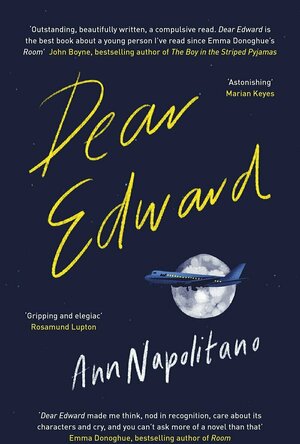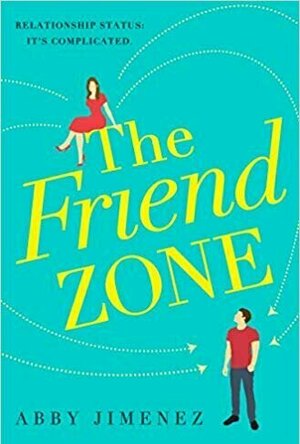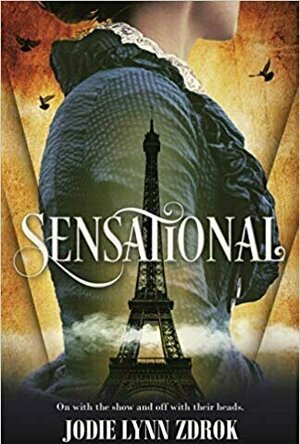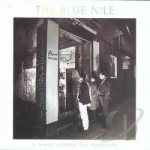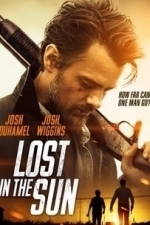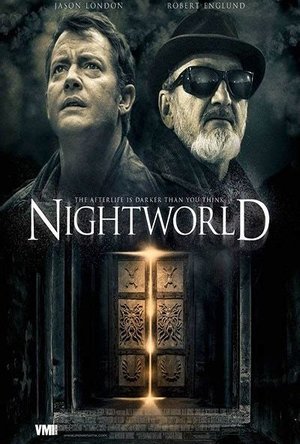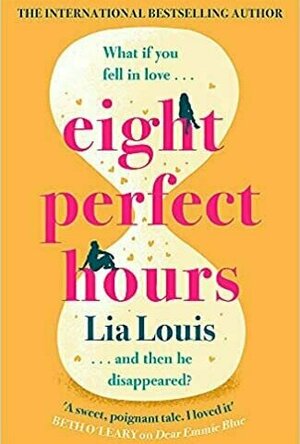Search
Search results
Kirk Bage (1775 KP) rated After Life in TV
Mar 3, 2020
As Ricky Gervais cheekily crow-barred in to his opening speech at the 2020 Golden Globes a few weeks ago, it is possible to watch all of After Life series one in less time than it takes to watch The Irishman. And that is exactly what I did; binged the whole thing on autoplay until it was done! Not to get it over with as soon as possible, but rather because it is hard to turn off – you just keep wanting more.
It’s not a complicated idea – Tony’s wife has died of cancer and he wishes he was dead too. Surrounded by tedious work colleagues in a dead end job, a father in a home with dementia, and having only a very hungry dog to lean on, he is filled with such bitterness and grief that he decides there is no point not doing anything he wants and being as nasty as possible to all around him.
The show glides effortlessly between hilarious situations, filled with sharp dialogue / small moments of comedy genius, and genuinely sad moments that leave a lump in the throat. It is a trick Gervais has been honing in all his shows since The Office, and now he has it down to a work of art you just have to applaud. No matter how ridiculous, it always seems rooted in truth and real emotion. Each vitriolic outburst is written so well we empathise with Tony almost every time, because he is usually right; and when he isn’t right, that moment of awkwardness is used with almost preternatural understanding of the audience to demonstrate the point of the whole conceit.
It boils down to the truth that no matter how much you want to give up on life and people, you can’t forget that happiness is a gift. Not just yours, but anyone’s. And to go around being an arsehole, wallowing in self-pity is entirely selfish, even if you have good reason to be that way. Distilled into less than 3 hours in total, After Life is no less than a magic trick, in not only achieving the passing on of that message, but in entertaining us every single minute in the meantime!
Thinking of how to rate it, I just can’t find much fault in what it sets out to be. It isn’t a grand or expensive production, it feels humble and economical, but oh so very focused. Do we want more bells and whistles? Have we come to expect that from our entertainment now. Is that what is missing? I feel I would recommend this show to anyone, and am very much looking forward to a second season in the Spring, but I also feel like it doesn’t need to have its trumpet over-blown; it’s just a lovely, funny, simple show about being alive.
It’s not a complicated idea – Tony’s wife has died of cancer and he wishes he was dead too. Surrounded by tedious work colleagues in a dead end job, a father in a home with dementia, and having only a very hungry dog to lean on, he is filled with such bitterness and grief that he decides there is no point not doing anything he wants and being as nasty as possible to all around him.
The show glides effortlessly between hilarious situations, filled with sharp dialogue / small moments of comedy genius, and genuinely sad moments that leave a lump in the throat. It is a trick Gervais has been honing in all his shows since The Office, and now he has it down to a work of art you just have to applaud. No matter how ridiculous, it always seems rooted in truth and real emotion. Each vitriolic outburst is written so well we empathise with Tony almost every time, because he is usually right; and when he isn’t right, that moment of awkwardness is used with almost preternatural understanding of the audience to demonstrate the point of the whole conceit.
It boils down to the truth that no matter how much you want to give up on life and people, you can’t forget that happiness is a gift. Not just yours, but anyone’s. And to go around being an arsehole, wallowing in self-pity is entirely selfish, even if you have good reason to be that way. Distilled into less than 3 hours in total, After Life is no less than a magic trick, in not only achieving the passing on of that message, but in entertaining us every single minute in the meantime!
Thinking of how to rate it, I just can’t find much fault in what it sets out to be. It isn’t a grand or expensive production, it feels humble and economical, but oh so very focused. Do we want more bells and whistles? Have we come to expect that from our entertainment now. Is that what is missing? I feel I would recommend this show to anyone, and am very much looking forward to a second season in the Spring, but I also feel like it doesn’t need to have its trumpet over-blown; it’s just a lovely, funny, simple show about being alive.
ClareR (6059 KP) rated Dear Edward in Books
Mar 8, 2020
A sad, yet life affirming novel.
Dear Edward is a beautiful book, and I suppose I should give a ‘you’ll need a handkerchief’ warning from the off.
It tells the story of twelve year old Edward Adler and his survival of a plane crash that left 119 people dead, including his parents and his older brother. The story moves back and forth in time, where we learn more about some of those people who were on board the plane, and Edwards life post-crash.
In the present day, Edwards grief is all-consuming. He can’t bring himself to eat, or sleep in the room that was always meant to be for his Uncle John and Aunt Laceys baby - she is unable to carry a baby beyond a few weeks, so the bedroom feels like a symbol of her serial losses.
Shay, the girl who lives next door with her mother, seems to be the person who holds Edward together. He sleeps on the floor of her bedroom for a long time, until Shays mother decides that it’s no longer appropriate. So Shay helps Edward prepare the basement of his aunt and uncles house as his bedroom.
Edward has to go through so many huge changes after the crash, and I really felt so much sadness for him. Even just going to school after always being homeschooled must have been a huge hurdle for him to get over, but there were also all of the other firsts that he had to overcome.
The title of the book refers to the letters that Edward and Shay find. The letters have been written by the friends and families of the plane crash victims, and Edwards uncle has hidden them from him. And with good reason. These are the letters of the grieving. They all seem to want something of Edward: to live a certain way, to take up a hobby, to do a certain job. There is no way he can do all of these things, and as 15 year olds, he and Shay realise this. As a 12 year old, he never would have, and it would have no doubt overwhelmed him.
I absolutely loved this book. It drew me in to the story of Edward, and I honestly felt bereft at the end of it. It’s undeniably sad, but it’s also life affirming, and I really liked how something so tragic could ultimately have such a positive outcome.
So if you pick this book up, read the back, then put it down again thinking that it’ll be too depressing, I’d just like to encourage you to give it a go. It’s a book well worth reading.
It tells the story of twelve year old Edward Adler and his survival of a plane crash that left 119 people dead, including his parents and his older brother. The story moves back and forth in time, where we learn more about some of those people who were on board the plane, and Edwards life post-crash.
In the present day, Edwards grief is all-consuming. He can’t bring himself to eat, or sleep in the room that was always meant to be for his Uncle John and Aunt Laceys baby - she is unable to carry a baby beyond a few weeks, so the bedroom feels like a symbol of her serial losses.
Shay, the girl who lives next door with her mother, seems to be the person who holds Edward together. He sleeps on the floor of her bedroom for a long time, until Shays mother decides that it’s no longer appropriate. So Shay helps Edward prepare the basement of his aunt and uncles house as his bedroom.
Edward has to go through so many huge changes after the crash, and I really felt so much sadness for him. Even just going to school after always being homeschooled must have been a huge hurdle for him to get over, but there were also all of the other firsts that he had to overcome.
The title of the book refers to the letters that Edward and Shay find. The letters have been written by the friends and families of the plane crash victims, and Edwards uncle has hidden them from him. And with good reason. These are the letters of the grieving. They all seem to want something of Edward: to live a certain way, to take up a hobby, to do a certain job. There is no way he can do all of these things, and as 15 year olds, he and Shay realise this. As a 12 year old, he never would have, and it would have no doubt overwhelmed him.
I absolutely loved this book. It drew me in to the story of Edward, and I honestly felt bereft at the end of it. It’s undeniably sad, but it’s also life affirming, and I really liked how something so tragic could ultimately have such a positive outcome.
So if you pick this book up, read the back, then put it down again thinking that it’ll be too depressing, I’d just like to encourage you to give it a go. It’s a book well worth reading.
Kristy H (1252 KP) rated The Friend Zone in Books
Mar 19, 2020
Kristen Petersen is a no-nonsense kind of girl. She's loyal to her best friend, Sloan, and worried about finally living with her boyfriend, who has been deployed for most of their relationship. She's also struggled for years with medical issues and is about to have a procedure that will leave her unable to have children. Then she meets Josh, the best friend and best man of Sloan's fiance, Brandon. Thrown together as they plan Sloan and Brandon's wedding, Kristen realizes she has feelings for Josh that she's never felt for anyone else. He's funny, kind, and puts up with all her quirks. But Josh wants a big family in the future. So Kristen distances herself from him. But the more time they spend together, the harder and harder it becomes to keep up the boundaries she's trying so hard to enforce.
The Friend Zone is one of those books that has been everywhere, but I clearly wasn't paying total attention to the plot. This is not your standard rom-com. The last note in my bookly app for this book reads, "fun sad enjoyed," and that really sums it all up. I found this one to be wonderfully written, much sadder than I expected, richly witty, rather dirty, and quite an enjoyable read. It wasn't at all what I went in expecting, but it was really more. Apparently there's a second book coming out soon, delving more into Sloan's story, and I'll certainly be reading that too.
Kristen is a tough character. She drove me crazy at first. I'm not a fan of books where so much could be resolved if someone just told someone else their secret. Sure, they may have their reasons for not wanting to spill, but good grief. Enough already! Luckily, Kristen was also a self-made businesswoman, really funny, a fully-fleshed out character, and easy to get hangry, which I could identify with (perhaps too much). She's a trip.
The friendship between Sloan and Kristen is a great part of the story--it's nice to see two women have a relationship that isn't marred by in-fighting or one that isn't based just on boys. It's real and flawed and, like much of the book, has its funny and sad moments. Josh is also a wonderful character, and, truly, he was a patient guy. The book's coverage of infertility is, mostly, quite well-done.
Overall, this was a strong read: funny and heartbreaking while featuring two characters with strong voices. It covers several serious topics without losing its way, and it's nearly impossible not to root for the main couple, even you want to shake Kristen once in a while. 4 stars.
The Friend Zone is one of those books that has been everywhere, but I clearly wasn't paying total attention to the plot. This is not your standard rom-com. The last note in my bookly app for this book reads, "fun sad enjoyed," and that really sums it all up. I found this one to be wonderfully written, much sadder than I expected, richly witty, rather dirty, and quite an enjoyable read. It wasn't at all what I went in expecting, but it was really more. Apparently there's a second book coming out soon, delving more into Sloan's story, and I'll certainly be reading that too.
Kristen is a tough character. She drove me crazy at first. I'm not a fan of books where so much could be resolved if someone just told someone else their secret. Sure, they may have their reasons for not wanting to spill, but good grief. Enough already! Luckily, Kristen was also a self-made businesswoman, really funny, a fully-fleshed out character, and easy to get hangry, which I could identify with (perhaps too much). She's a trip.
The friendship between Sloan and Kristen is a great part of the story--it's nice to see two women have a relationship that isn't marred by in-fighting or one that isn't based just on boys. It's real and flawed and, like much of the book, has its funny and sad moments. Josh is also a wonderful character, and, truly, he was a patient guy. The book's coverage of infertility is, mostly, quite well-done.
Overall, this was a strong read: funny and heartbreaking while featuring two characters with strong voices. It covers several serious topics without losing its way, and it's nearly impossible not to root for the main couple, even you want to shake Kristen once in a while. 4 stars.
Anne (15130 KP) rated Sensational in Books
Feb 12, 2020
Intriguing and Engaging
Thank you to NetGalley and Macmillan-Tor/Forge -Tor Teen for letting me read and review this book. I enjoyed it and could follow along easily with the same characters and such from having read the first book, Spectacle, which if you haven't read that one - you should go get it and read it now to get ready for this one!
This was another engrossing, fun and delightful read by Jodi Lynn Zdrok - I enjoyed the first book and this one was awesome too.
In this sequel to Spectacle, Nathalie is still using her powers as an Insightful to help out at the morgue with murder investigations while also trying to figure things out in regards to her Aunt and her Aunt's powers in relation to her powers. She is, in general, trying to investigate and understand what it means to be an Insightful and to be herself and what she wants out of life as well.
In this story, there's another crazy murderer who this time is celebrating the 100th anniversary of the Guillotine and writing a play to go with their murders and victims while beheading them and leaving them around in the Exposition Universelle in Paris to be found. Nathalie tries to help find this murderer using her powers while helping out at the morgue with the cases, but this time around it seems to catch her and others off guard as well as myself as the reader. I had no clue who the murderer was until the end and I was also a bit more invested in the other parts of the story like the events with Nathalie's Aunt and her coming to terms with her grief over her friend, Agnes.
Another major part of the story that I was invested in was that in this book, Nathalie has a beau, Jules, and what happens with him and their relationship as well as what happens with Christophe, which if you've read the first book, you'll know more about the relationship issues, etc. between Christophe and Nathalie. I finally got the ending I was hoping for with her and her romantic relationships with this book.
Once I got to the end and everything was resolving itself and I realized this was the end, I was a bit upset because I have enjoyed reading about Nathalie, Christophe, Simone, Louis, Jules, all the characters and about Insightfuls and their powers. I wish there was going to be more stories with these great characters and would love to know more about them and their futures as well as more info on Insightfuls and their powers.
If you've read Spectacle, then you need to read this sequel, if you haven't read Spectacle, go read it so you are ready for this Sensational book when it comes out!
This was another engrossing, fun and delightful read by Jodi Lynn Zdrok - I enjoyed the first book and this one was awesome too.
In this sequel to Spectacle, Nathalie is still using her powers as an Insightful to help out at the morgue with murder investigations while also trying to figure things out in regards to her Aunt and her Aunt's powers in relation to her powers. She is, in general, trying to investigate and understand what it means to be an Insightful and to be herself and what she wants out of life as well.
In this story, there's another crazy murderer who this time is celebrating the 100th anniversary of the Guillotine and writing a play to go with their murders and victims while beheading them and leaving them around in the Exposition Universelle in Paris to be found. Nathalie tries to help find this murderer using her powers while helping out at the morgue with the cases, but this time around it seems to catch her and others off guard as well as myself as the reader. I had no clue who the murderer was until the end and I was also a bit more invested in the other parts of the story like the events with Nathalie's Aunt and her coming to terms with her grief over her friend, Agnes.
Another major part of the story that I was invested in was that in this book, Nathalie has a beau, Jules, and what happens with him and their relationship as well as what happens with Christophe, which if you've read the first book, you'll know more about the relationship issues, etc. between Christophe and Nathalie. I finally got the ending I was hoping for with her and her romantic relationships with this book.
Once I got to the end and everything was resolving itself and I realized this was the end, I was a bit upset because I have enjoyed reading about Nathalie, Christophe, Simone, Louis, Jules, all the characters and about Insightfuls and their powers. I wish there was going to be more stories with these great characters and would love to know more about them and their futures as well as more info on Insightfuls and their powers.
If you've read Spectacle, then you need to read this sequel, if you haven't read Spectacle, go read it so you are ready for this Sensational book when it comes out!

Music at Midnight: The Life and Poetry of George Herbert
Book
For the first time, John Drury convincingly integrates the life and poetry of George Herbert, giving...
Shirley Manson recommended Walk Across the Rooftops by The Blue Nile in Music (curated)
Darren (1599 KP) rated Lost in the Sun (2015) in Movies
Sep 13, 2019
Characters – John is a crook, he seems to be freshly out of prison needing to payback debts for protection in prison, he offers to take Louis to his grandparents and starts using him to help pay of the debts, showing him the life of crime, it is clear early on that he does have a connection to Louis, we are left to see what that connection is. Louis is the teenager that has been left orphaned when his mother dies, he reluctantly joins John in the cross-country trip where he gets to learn certain things he wouldn’t have before, including how to drive and how to shoot a gun. We do only meet characters along the way, some help and most are the people they are robbing.
Performances – Josh Duhamel is good in the leading role, it is one of his better performances as she shows how conflicted his character is and just how desperate he is to clear his debts, while trying to guide the teenager. Josh Wiggins is great in his role of the film, he gets to show moments of grief and moments of moving on with life as he is the one that needs to learn the biggest life lessons. The rest of the cast are solid without needing to do that much.
Story – The story here comes down to one man trying to make up for his own mistakes in life by helping a young teenage boy across country to live with his grandparents only along the way we see him teach him life lessons which could one day prepare him for the real-world. This gives us a chance to see a redemption story while also giving us a coming-of-age chapter in Louis’s life, this isn’t going to break any ground in the genre and does everything it needs to do for the characters. We do get moments of questioning moments of what Louis is forced to do and for the most we don’t get enough time to look at the crimes that have left John where he is in life.
Action – The action in the film is simple, we get a couple of weak chases and robberies, they are easy to watch and barely break into a sweat.
Settings – The film takes us across America, we don’t hit any landmarks which just shows us small town after small town or open roads.
Scene of the Movie – The final moment.
That Moment That Annoyed Me – Boys don’t just want to drive cars and shoot guns.
Final Thoughts – This is a simple coming of age film, it checks the boxes well without doing anything we haven’t seen before.
Overall: Coming-of-age 101
Performances – Josh Duhamel is good in the leading role, it is one of his better performances as she shows how conflicted his character is and just how desperate he is to clear his debts, while trying to guide the teenager. Josh Wiggins is great in his role of the film, he gets to show moments of grief and moments of moving on with life as he is the one that needs to learn the biggest life lessons. The rest of the cast are solid without needing to do that much.
Story – The story here comes down to one man trying to make up for his own mistakes in life by helping a young teenage boy across country to live with his grandparents only along the way we see him teach him life lessons which could one day prepare him for the real-world. This gives us a chance to see a redemption story while also giving us a coming-of-age chapter in Louis’s life, this isn’t going to break any ground in the genre and does everything it needs to do for the characters. We do get moments of questioning moments of what Louis is forced to do and for the most we don’t get enough time to look at the crimes that have left John where he is in life.
Action – The action in the film is simple, we get a couple of weak chases and robberies, they are easy to watch and barely break into a sweat.
Settings – The film takes us across America, we don’t hit any landmarks which just shows us small town after small town or open roads.
Scene of the Movie – The final moment.
That Moment That Annoyed Me – Boys don’t just want to drive cars and shoot guns.
Final Thoughts – This is a simple coming of age film, it checks the boxes well without doing anything we haven’t seen before.
Overall: Coming-of-age 101
Darren (1599 KP) rated Nightworld (2017) in Movies
Sep 16, 2019
Characters – Brett Anderson is a grief stricken for police officer, he retired from the force after his wife’s death, he takes a job as a security guard in an apartment in Bulgaria which leads him to get caught up in a mystery about the apartment which brings him past back to haunt him. Jacob is a former guard that lost his eye sight, he knows the mystery about the apartment and helps guide Brett through the strange events. Martin is the apartment manager and needs to find a new guard to watch over any problems in the apartment when he is away. Zara is the waitress at the local café that offer a romantic angle for Brett, while filling in the blanks about the history of the apartment.
Performances – Jason London is solid enough in the leading role, most of what he does is ask questions which is how the audience must learn what is going on. Robert Englund as the elderly figure that is trying to help works well because he is the biggest draw for the film. Gianna Capaldi and Lorina Kamburova are both fine they never get out of first gear for their performances though.
Story – The story here follows a man that needs to rebuild his life, get given a job as a security guard for an apartment building that has secrets he can’t even imagine. The pace of the story is slow, because we have a lot of building up with little to no hints to what the big conclusion will be, the final third of the film lets everything go, making the early parts of the story more interesting, the time loss angle does feel tagged in for no reason and by the end you still won’t completely understand what just happened. The reveals in the film are big, though they could be considered overkill for what could have be a much more subtle story.
Horror – The horror comes from the nightmares Brett suffers before the big reveal in the final act which shows us just what has been going on.
Settings – The whole film is set in one building, it shows how the layers can hold secrets and the mystery about the building is key t the story being told.
Special Effects – The effects in the film are used well when needed, we don’t go over the top with them and the best one are used for the final act.
Scene of the Movie – Behind the door.
That Moment That Annoyed Me – Starts too slow for the ending.
Final Thoughts – This is a slow burning horror thriller, it does reward us with a manic ending which is worth the wait for, only it does take too long to get there with little hints to help us understand the ending.
Overall: Slow though rewarding.
Performances – Jason London is solid enough in the leading role, most of what he does is ask questions which is how the audience must learn what is going on. Robert Englund as the elderly figure that is trying to help works well because he is the biggest draw for the film. Gianna Capaldi and Lorina Kamburova are both fine they never get out of first gear for their performances though.
Story – The story here follows a man that needs to rebuild his life, get given a job as a security guard for an apartment building that has secrets he can’t even imagine. The pace of the story is slow, because we have a lot of building up with little to no hints to what the big conclusion will be, the final third of the film lets everything go, making the early parts of the story more interesting, the time loss angle does feel tagged in for no reason and by the end you still won’t completely understand what just happened. The reveals in the film are big, though they could be considered overkill for what could have be a much more subtle story.
Horror – The horror comes from the nightmares Brett suffers before the big reveal in the final act which shows us just what has been going on.
Settings – The whole film is set in one building, it shows how the layers can hold secrets and the mystery about the building is key t the story being told.
Special Effects – The effects in the film are used well when needed, we don’t go over the top with them and the best one are used for the final act.
Scene of the Movie – Behind the door.
That Moment That Annoyed Me – Starts too slow for the ending.
Final Thoughts – This is a slow burning horror thriller, it does reward us with a manic ending which is worth the wait for, only it does take too long to get there with little hints to help us understand the ending.
Overall: Slow though rewarding.
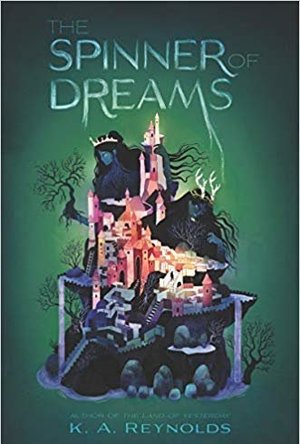
The Spinner of Dreams
Book
Inventive, empathetic, and strange in all the best ways, The Spinner of Dreams draws from the...
Kristy H (1252 KP) rated Eight Perfect Hours in Books
Oct 28, 2021
Noelle Butterby has recently broken up with her boyfriend of twelve years, Ed. Ed found Noelle pathetic for staying home to take care of her ill Mum and therefore being unwilling to travel to the States with him for a new job. But for Noelle, it's more than that. Her family obligations are both confining and all she has--leaving her unable to fulfill her own dreams, including opening her own flower shop. On her way to her university reunion--the first time she's been out in ages--Noelle finds herself trapped on a snowy roadway. With traffic stalled for hours, she meets Sam, the man in the car next to hers. They form a small friendship over the eight hours they're stuck, bonding while she charges her phone and they forage for food. In those few hours, Noelle is truly, actually happy. But the roadway is cleared and Sam drives off. Yet, somehow, after their snowy time together, the universe seems to continue to throw Sam and Noelle together. Each is dealing with their own relationship woes, but they feel drawn to one another. Are Sam and Noelle meant to be? And can Noelle find her own way while dealing with the weight of her family responsibility?
"Eight hours. Eight tiny hours is all they were. And already I miss them. Ridiculous. I am ridiculous."
I fell completely for this charming story. It's completely lovely, with such wonderful characters in Noelle and Sam, whom I found myself rooting for from the beginning. There are enough obstacles that I actually found myself wondering if they would wind up together, yet determined that they were meant to be. The book is so sweet yet has its serious moments as well, and it tackles mental health in a honest way, dealing with depression, agoraphobia, and post-partum issues quite well.
"And I feel--something. I don't know what exactly. Alive. Buzzy. Like my blood is rushing with stars, with electricity."
Both Sam and Noelle lost someone early in their lives, and some parts of this book will hit hard if you lost a loved one in your early twenties--their grief feels so real and raw (also a trigger warning for suicide). Their lives have been changed by these deaths, as well as hanging on to relationships that may not be the best for them. Watching them bond is so heartwarming. This is such a romantic read, with excellent pieces of chemistry and sexual tension--it's so well-done and builds quite excellently. This isn't insta-love, but a good slow burn that feels passionate and honest.
Overall, I really loved this one. The romance is excellent, and the message of finding your way together when it was meant to be is beautiful. 4.5 stars.
"Eight hours. Eight tiny hours is all they were. And already I miss them. Ridiculous. I am ridiculous."
I fell completely for this charming story. It's completely lovely, with such wonderful characters in Noelle and Sam, whom I found myself rooting for from the beginning. There are enough obstacles that I actually found myself wondering if they would wind up together, yet determined that they were meant to be. The book is so sweet yet has its serious moments as well, and it tackles mental health in a honest way, dealing with depression, agoraphobia, and post-partum issues quite well.
"And I feel--something. I don't know what exactly. Alive. Buzzy. Like my blood is rushing with stars, with electricity."
Both Sam and Noelle lost someone early in their lives, and some parts of this book will hit hard if you lost a loved one in your early twenties--their grief feels so real and raw (also a trigger warning for suicide). Their lives have been changed by these deaths, as well as hanging on to relationships that may not be the best for them. Watching them bond is so heartwarming. This is such a romantic read, with excellent pieces of chemistry and sexual tension--it's so well-done and builds quite excellently. This isn't insta-love, but a good slow burn that feels passionate and honest.
Overall, I really loved this one. The romance is excellent, and the message of finding your way together when it was meant to be is beautiful. 4.5 stars.

